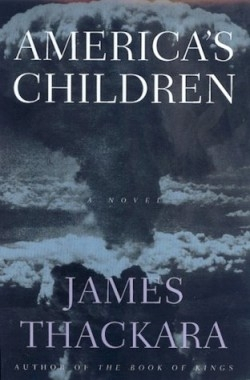America's Children
Once there was a golden age where knowledge and science seemed poised to save the world or destroy it. The brightest star in this world was J. Robert Oppenheimer, the brilliant physicist renowned for his grace, his extraordinary good looks, and his superb intelligence. He was deeply aware of the responsibility that came with his ability to effortlessly teach, inspire, and make happy all those who crossed his path. He led a sweet life in his Berkeley mansion with his wife and newborn son, giving the occasional lecture and attending conferences where he would astound the intelligentsia. Only a gnawing awareness of social injustice and the growing tensions in Europe interrupted the exhilaration of his research and the contentment he found at home.
It took the shock of Pearl Harbor to finally break through this academic idyll. While his colleagues jockeyed to be first in line for the inevitable big bucks to be spread around for research into the most advanced form of weaponry, Oppenheimer pondered the morality of using his great gift of science for destructive purposes. It was this hesitancy that convinced the military bigwigs that Oppenheimer was the man to become the scientist-prince to rule over the army’s new Nuclear Department of War as the head of the Manhattan project charged with creating the first atomic bomb. In a battle between his conscience and his sense of responsibility to his country, he finally embraced the sickening loneliness that accompanied the decision to lead the best minds of his generation in developing the weapon that could win the war against Hitler, but would alter our world forever.
Thackara neatly foreshadows Oppenheimer’s work at conquering the atom with early scenes of his lifelong duels with nature, from the breaking of a horse to his favorite pastime of fishing. Oppenheimer is a heroic figure, revered by all, yet plagued with the knowledge that to live up to others’ expectations will let a genie out of a bottle that can never be recaptured. Thackara has bitten off quite a chunk of the twentieth century for this book: history, science, philosophy, and sociology are all considered. While the prose occasionally feels the weight of all this content, the author nonetheless manages to build the tension masterfully as Oppenheimer pursues his, and the world’s, destiny.
Reviewed by
Dan Bogey
Disclosure: This article is not an endorsement, but a review. The publisher of this book provided free copies of the book to have their book reviewed by a professional reviewer. No fee was paid by the publisher for this review. Foreword Reviews only recommends books that we love. Foreword Magazine, Inc. is disclosing this in accordance with the Federal Trade Commission’s 16 CFR, Part 255.

